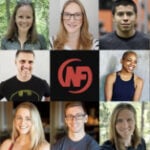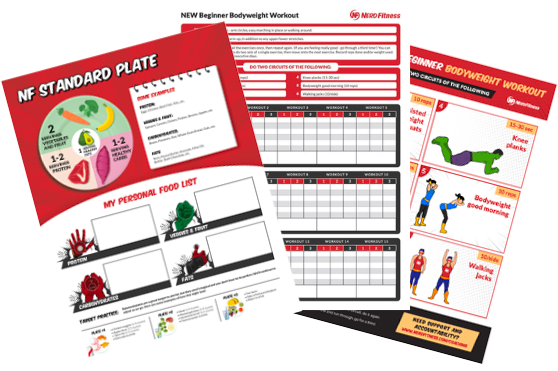You know the story of Sisyphus, right?
In case you’ve been living under a rock (boulder?), his story is one of the most famous cautionary tales in Greek mythology.
Sisyphus, the king of Corinth, was a tyrant who killed his visitors and plotted to murder his own brother. These things are generally frowned upon. Oh, he also treated his children as political pawns and managed to cheat death. Twice.
Needless to say, all of this behavior did not make the gods on Mount Olympus happy.
When Sisyphus finally died, the gods forced him to push a boulder up a hill, only to have it roll back down every time he neared the top, for eternity. Brutal, right? Eternal misery and dissatisfaction.
This tale pops up fairly regularly in modern society too. A “Sisyphean task” is a task or activity that wastes a ton of effort and produces no results. Businesses and companies and people all over the world do whatever they can to avoid Sisyphean tasks.
Which leads me to the point of today’s email:
What if the tale of Sisyphus wasn’t a cautionary tale?
What if, as Albert Camus points out, the tale Sisyphus was actually an instruction manual?
Sisyphus is “free” from the hope he would ever succeed. He accepts his fate he would never win, and thus can just get to work on finding meaning in pushing that rock, watching it roll back down, and starting over again.
Sisyphus is teaching us a killer lesson here, if we’re willing to listen.
Okay, not the murder and cheating death parts.
But there’s something powerful about Sisyphus pushing that dumb rock up the hill, knowing he’ll never reach the top!
He’s accepted his fate, which is a step most of us never get to.
He already knows the outcome (“failure”), and rather than thinking of this as a futile pursuit, it’s an opportunity to focus on the experience.
I’m reminded of this great quote from the prolific Brandon Sanderson, author my favorite fantasy series (the Mistborn trilogy) and a bazillion other books:
“I can do hard things. Doing hard things has intrinsic value, and they will make me a better person, even if I end up failing.”
We’re all trying to level up our lives in our own ways, and that’s a really hard thing.
Even if we fail making the attempt. Especially if we fail making the attempt. There is value for us in doing hard things.
The boulder I’m currently pushing…
Speaking of Sisyphean tasks, I’m trying to build a meditation habit for the 1000th time, and I imagine I’ll probably fail once again. Which is fine, as I expect it:
Try, fail, try differently, fail, try differently…
While listening to a recent session in the Waking Up app, I found this lesson particularly helpful:
“The quality of the journey has to become more important than those fleeting moments when you actually arrive at your destination, because most of your life IS the journey.
Most of your life is the process of solving problems. It is not, and never will be, a condition of basking in the absence of all problems.
There will always be something to do.
The frame of mind in which you do it will determine the quality of your life. You can’t wait until you solve your problems to be happy.”
How many of us have delayed living, happiness, and self-compassion until we get that boulder over the hill?
- I don’t want to be in photos until I lose some weight.
- I’ll be happy once I fit into these pants.
- I can’t be satisfied until I have a million dollars in the bank.
Here’s why this line of thinking is devastating: Life is happening now. If we fail at reaching our goal, we might spend years not living. If we accomplish the goal, we’ll quickly learn it didn’t solve all of our problems, or we were chasing the wrong goal to begin with.
I spent a good 15 years prioritizing “once I get to the top of the mountain.”
I would get so deflated every time the boulder rolled back to the bottom. It was only after I finally accepted pushing the boulder WAS the point that I started living again.
If you’ll allow me to share a sad but powerful exclamation point:
In Peter Barton’s autobiography Not Fade Away, Barton writes about his struggles with his terminal cancer diagnosis. In a moment of understandable depression and low spirit…
Barton said to his wife, “I just don’t see the point.”
So she replied, “So find one.”
Finding the point became the point.
We might not have a terminal diagnosis, or be doomed by Mount Olympus, but we can learn from Barton and Sisyphus.
We can remember finding the point is the point.
Change and growth and the journey are the only option because the destination is not guaranteed.
What’s your boulder and where’s your hill?
Most people probably find Nerd Fitness looking for a diet to lose 20 pounds, or a 5k training plan, or a strength workout to finally feel good in their skin.
And we create resources and coach clients for ALL those things.
But what keeps people here? What allows them to find lasting, enjoyable success?
They fall in love with pushing the boulder instead of fixating on what’s at the top of the hill:
- They go for a run, not for the calories burned, but because of how it makes them feel.
- They start to eat differently, not just for weight loss, but because they’re healing their relationship with food.
- They hit the gym, not because muscle burns more calories than fat, but because they love lifting heavy things.
We’re all Sisyphus, pushing a rock. The top of the hill might never arrive.
Which means we need to evaluate our expectations:
Picking a physical activity that’s more fun even if it burns fewer calories.
Making fewer changes to our diet but allowing ourselves to enjoy our meals.
Focusing on moving daily rather than some arbitrary goal we’re chasing.
I’d love to hear from you:
- Is there a goal in your life that’s hyper-focused on “Once I get to that goal, then I’ll be happy/successful?”
- How can you shift your perspective to “Even if this boulder never gets up the hill, it’ll still be a good use of my time?”
-Steve


